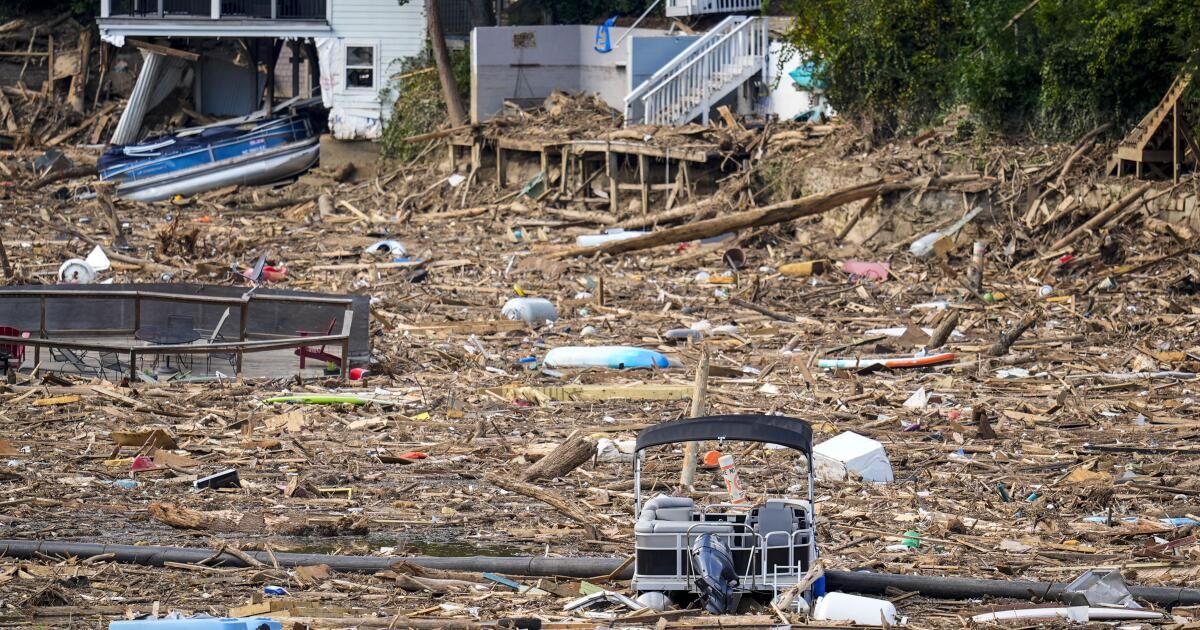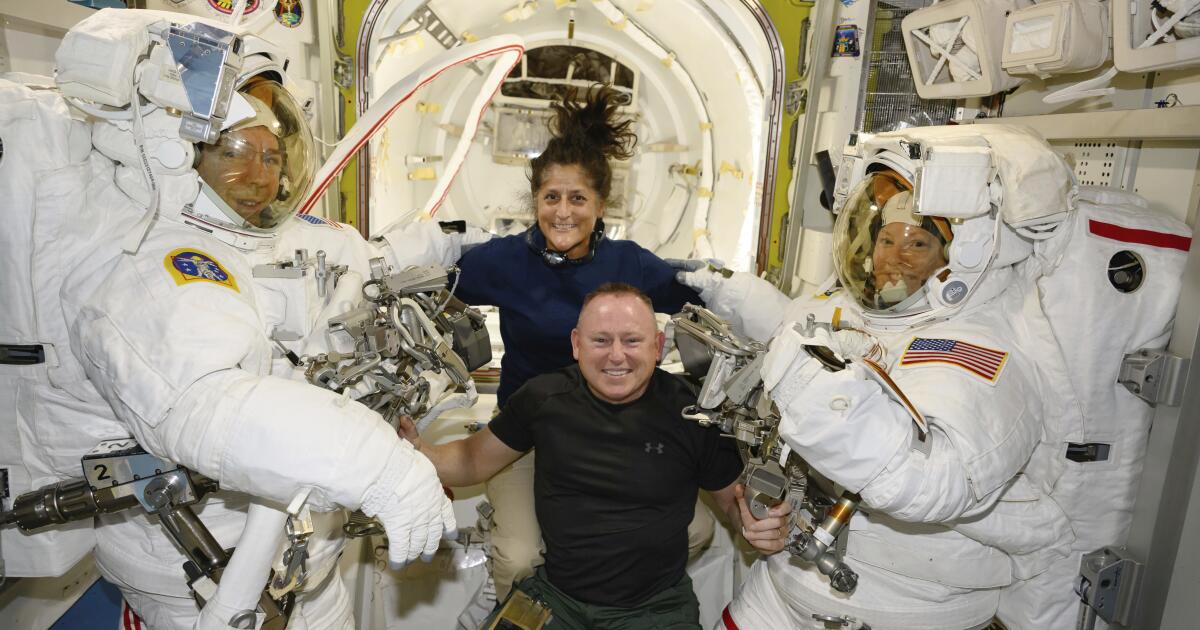Last week, as I boarded a plane from the Gulf Coast to Climate Week New York, I checked the weather for updates on the disruption that would become Hurricane Helene and called my partner to go over our weather plan. evacuation. When I hung up the phone, the man next to me, an evangelical pastor from Alabama, asked me if I knew anything about the storm. I told him I work on climate change and he didn't flinch: “Yeah, it's getting biblical.”
This time the hurricane didn't come for my partner and me, but it destroyed my hometown in the mountains of North Carolina. I have spent 20 years working in climate and live between Los Angeles and the Alabama Gulf Coast, where I have counted on the likelihood that one day we will lose our home. I have also accepted that worsening wildfires, droughts and heat waves could make Southern California uninhabitable. But Asheville was considered a climate paradise. I have always told my family members that we will never be able to sell our homes there. It is absolutely incomprehensible that it would be devastated first by one of the worst climate disasters in American history. Helene showed us no safe place.
I work with screenwriters to depict the climate crisis on television and film, and what's happening in Western North Carolina feels more like a dystopian movie than real life. My sister lives in Black Mountain, which is where I also lived for most of my 20s and is just outside of Asheville. She is safe, but the floods devastated the city. A friend was with his son at the farm-to-table restaurant he owns there. The water rose inches into a raging, chest-deep river so fast they literally had to swim for their lives to get to the top. Their pigs drowned.
Two neighboring towns… Swannanoa and chimney rock – they are gone. A friend woke up at 4 a.m. at his girlfriend's house in Asheville to see the waters rising at an alarming rate. They narrowly escaped. His third-floor apartment flooded and he lost everything. His neighbor lost his life. My sister's friend had to jump from his window into a tree with his two cats and was left abandoned there, in a violent flood, for eight hours. At least two friends' houses were destroyed. My brother's community art studio, along with most of the River Arts Districtwas destroyed. People are stuck with increasingly scarce food and no access to water. hundreds of roads are impassable, helicopters and mules They are the only ways to get supplies to many areas, and rescuers can't locate survivors because people don't have cell service or reliable power. On Wednesday night, my best friend texted me: “I'm crying. “They are finding bodies in the trees.”
More than The death of 200 people has been confirmed. Hundreds are missing. PTSD, suicide, substance abuse and depression. peak significantly after climate disasters. The pillars of Western North Carolina's economy – tourism, arts and agriculture – are closed for the foreseeable future. Cleanup and reconstruction efforts are on track to take tens of billions of dollars and many years. Some places will never return.
Scientists estimate that climate change has increased The rains of Hurricane Helene by up to 50% in parts of the Carolinas and Georgia, yielding more than 40 billion gallons of water. At New York Climate Week, the annual awareness event held in conjunction with the UN General Assembly, the disconnection from this devastating reality was surreal. There were fancy parties, happy images of the sun, and giant signs that said “HOPE.” The dominant theme was: We can solve this! We need to tell hopeful climate stories! But there is no way to “solve” a hurricane ravaging western North Carolina, hundreds of miles from the sea. Focusing solely on optimism is like telling a cancer patient that everything will be okay if they stay positive. At best, he seems out of touch; At worst, you feel numb. Yes, we can still prevent the worst impacts and must demand our governments scale up solutions and act urgently, but we cannot minimize the horrors that are unfolding now, or will worsen in the years to come.
Fossil Fuel Executives Know This since the 1970s that the burning of oil, coal and gas would cause an escalation of climate catastrophes and suffering around the world. However, they liedThey sacrificed our safety for their greed and simply unleashed an apocalypse on my hometown. Their actions will condemn today's children to a planet that will be more hell than Earth by the end of the century if we don't stop them. It's not just a tragedy; It is a crime against humanity.
What is happening in North Carolina doesn't seem real. I don't have an emotional framework for this, nor a story to help me. Right now, what I desperately need are authentic stories to help us figure out how to be human in this changing world, to face this overwhelming crisis with courage. Stories that help us navigate our understandable fear, anxiety, grief, despair, uncertainty and anger in a way that allows us to feel seen. Stories that make us laugh, not ignoring our reality, but in the midst of it, and stories that remind us that there is still a lot of beauty here to fight for. That captures how, in the living nightmare of climate disasters, people demonstrate extraordinary kindness and creativity, as they are doing in Asheville and Black Mountain at this very moment. And we need stories that expose the guilt of the fossil fuel industry.
I need help making sense of all this, and stories have always been about how humans make sense of our world. But as I grieve an unimaginable loss, the last thing I want are optimistic stories about hope. As a climate scientist Kate Marvel says: “We need courage, not hope, to confront climate change.”
Anna Jane Joyner is the founder and executive director of the non-profit organization Story Support. good energy.












